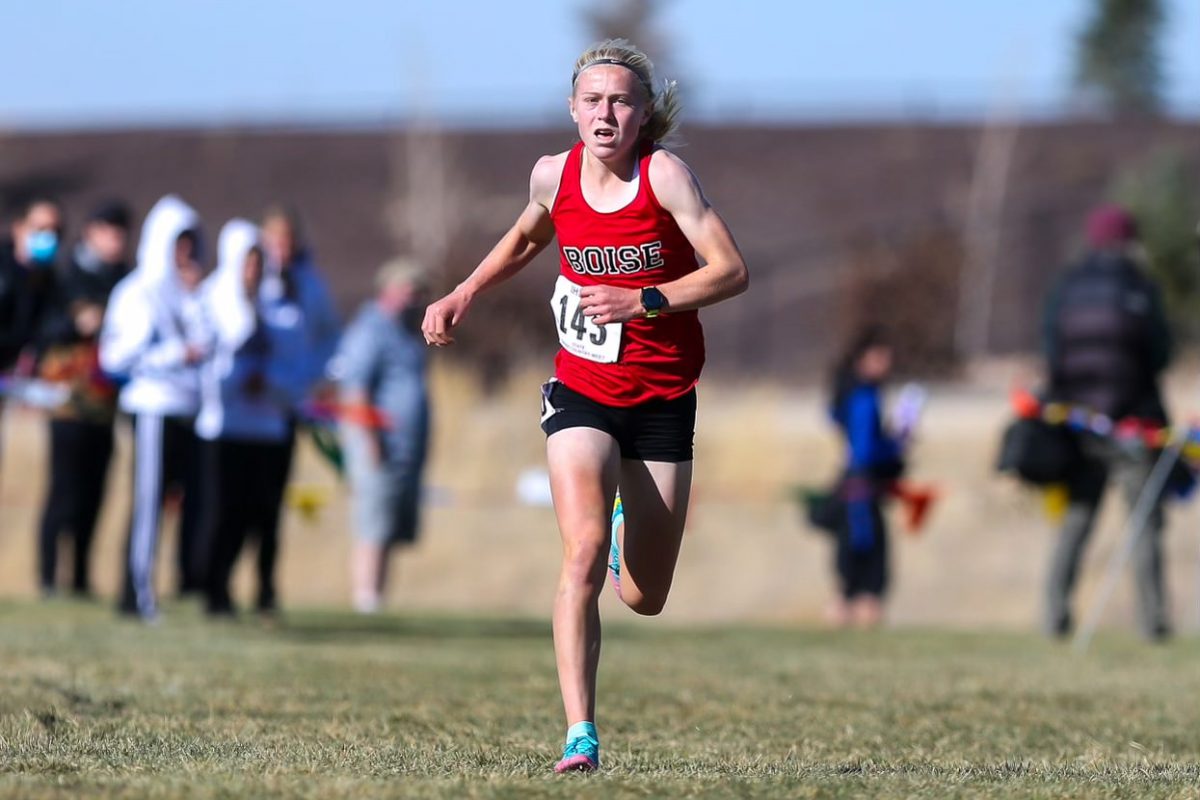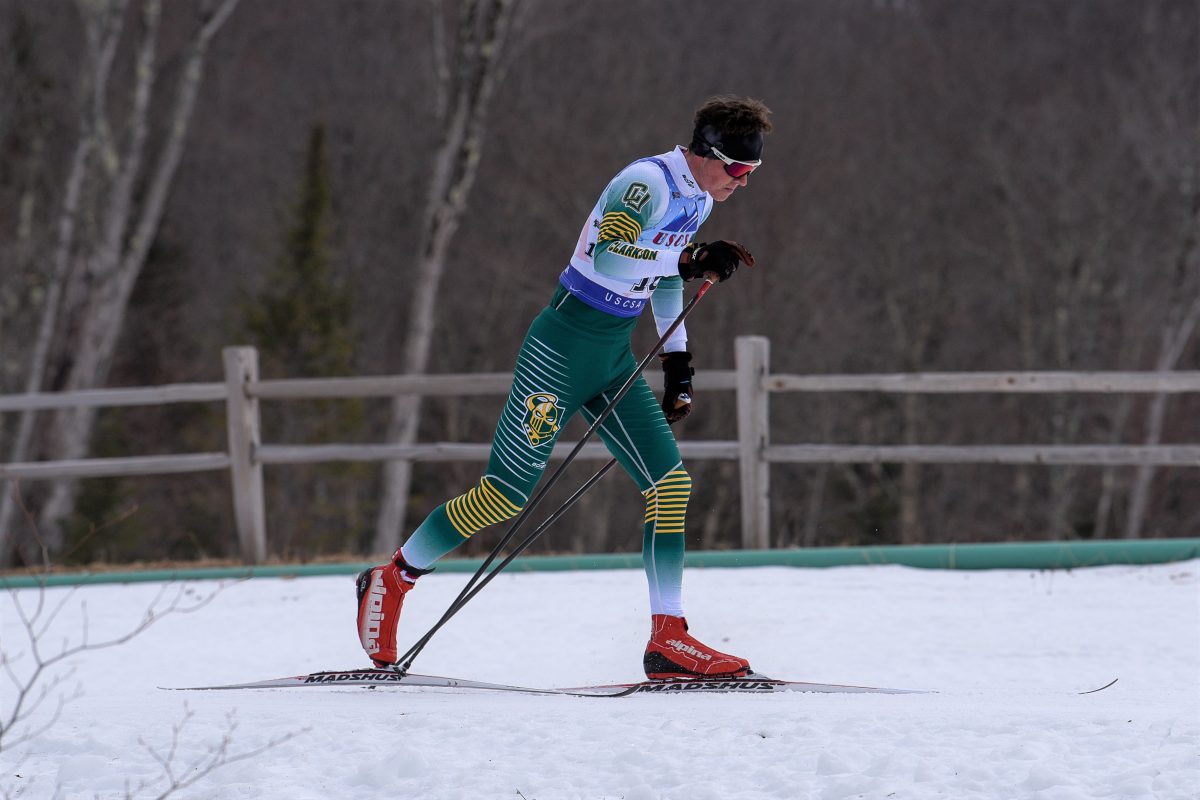Tim Burke is a member of the U.S. Biathlon A Team, and has already qualified for the 2010 Olympics based on his results from last year. In 2008-2009, he finished 25th overall in the World Cup standings, with two top-ten finishes: eighth in the pursuit in Khanty-Mansijsk, Russia, and ninth in the sprint in Trondheim, Norway. He competed in the Olympics in Torino in 2006, placing 37th in the sprint.

FasterSkier: You’re currently at a training camp in Lake Placid with the biathlon team. It seems like you have a pretty close, competitive group between you, Lowell Bailey, Jeremy Teela, and Jay Hakkinen.
Tim Burke: We’ve had a three-week camp going on, and we’re half way through the first week. We’ve got the six guys on the national team and the six guys on the development team, as well. When we’re in camp like this, we do pretty much every session together as a team.
We have an awesome group of guys right now. I’ve never had a group of guys to train with like this—we’re a really competitive group, and it makes the training sessions a lot of fun. I think everyone gets a lot out of it.
FS: Is it hard not to get too competitive when you’re heading out with all of those guys?
TB: I would say that would be the only issue—when you head out for a level three interval session, it can easily escalate into max intervals. Everyone here’s pretty professional, though, and we all know the goals of each workout…I’ll admit that there are a few more sign sprints than are on the schedule.
FS: You wrote on your blog that you pre-qualified for the Olympics based on your results from last season—does that make your training approach easier for this year, not having to worry about skiing fast at the trials as well as at the Games?
TB: It was a goal of mine to pre-qualify last year. Now we’re going forward with the same plan that we’ve had all along. Training wise, things are pretty similar. I’ve been working with my coach Per Nilsson—this is my fourth year with him. This year it’s a combination of the best things from the previous three seasons. We’re really confident we have a good plan—we have a ton of information over the past three years from what works for me. Everything’s going forward in a really good direction.

FS: You’re based out of Lake Placid, right? Tell us a little more about the training there.
TB: I’m based out of Lake Placed, and it’s a great place to train out of. We have the Olympic Training Center here—that offers a lot of things. With the cafeteria, I don’t have to do any cooking for myself. We’ve got a great weight room here, and I do quite a lot of intensity in the treadmill room. We have a camera on the front and a camera on the side, so we can do a lot of video work in there.
We also have a 1.5 kilometer rollerski loop with a four-point range right in town, at the ski jumps. It was all redone last week. We also have, in my opinion, the best road biking and rollerskiing on the roads, as well as trail running. Lake Placid to me really offers this whole package, and I can do a lot of that training right out my front door.
We also have a full time coaching staff here. I’m working with James Upham pretty much every day, and I’ve got someone there to do technique work, lactate, all that stuff.
FS: Do you ever get out with the cross country or nordic combined guys when they’re in town?
TB: Definitely. Bill Demong’s from here as well, and he comes back not as much as we would like, but every time he’s home we try to get a session in.
We have a really good group of guys training here full-time. I guess there’s five or six of us here, and we train together pretty every day. Lowell [Bailey], Zach Hall, Bill Bowler—those are the guys that are here every day, and then also being in Lake Placid other athletes are coming through here pretty often, whether it’s cross country or nordic combined.
FS: How much are you working on your shooting this time of year? You wrote on your blog that you were working with a U.S. Shooting Team coach this sprint?
TB: Shooting’s a really big priority for me this year. If I want to improve my results, the easiest place for me to improve is in my shooting. My shooting isn’t good enough to be where I want to be. I’m throwing everything at it this year. I worked with one of the U.S. shooting coaches in Colorado Springs—it’s really cool to go out there and see how they work. I got a lot of ideas from them.
Two years ago we had a shooting coach that left to go coach the Norwegian team. This year we hired Armin Auchentaller, who was the Italian men’s team head coach. I’ve been working with him now since the springtime, and it has been absolutely fantastic. He has come in and really restructured going about my shooting training.
FS: How so?
TB: One of my biggest problems in the past few years was that I was giving away a lot of time in the shooting range. When I’m fighting to get on the podium with someone like [Ole Einar] Bjorndalen, I can’t give away 10 or 15 seconds in just range time. So Armin has just helped me a lot with that, working through different drills and breaking the process down into really small steps, and working on a couple of those a day. Already I’ve seen my range times come down an average of 5 seconds per stage. If you look at a four-stage race I’m going to save an average of 20 seconds per race, which, if you look at a pursuit race, can be 10 places, 15 places.
FS: Psychologically, that must be a huge boost.
TB: Psychologically it’s really motivating, and it’s always great to have a different focus from time to time. [Armin] really kind of restructured things for me. It’s given me a greater focus and motivation for the shooting training aspect of our sport. I think lots of times in the past, I looked at myself as a skier who also shot, and he’s helped change that around for me. I’m really motivated to do everything possible to improve my shooting, because that’s what’s going to need to happen if I’m going to reach my goals.

FS: Biathlon is one of the most popular spectator sports in Europe, while it doesn’t get a whole lot of attention in the U.S. Is it a bummer to come home and not get any recognition for what you’re doing, or is it nice to be able to fly under the radar?
TB: I think it’s a little bit of both. It’s nice to come home and be training and have that quiet—I don’t have to worry about those other things. I know my European competitors have incredibly busy schedules with sponsor obligations, speaking, and other things. I don’t really have as much of that.
At the same time it would be nice to have more recognition on the home front, although I do have a lot of home support here in Lake Placid as well.
FS: One of our bloggers sparked some speculation earlier this year when he proposed a 15k skate race between you, Kris Freeman, and Billy Demong. Do you think you could take those guys?
TB: It would be a really fun race. It’s something that I’m not going to speculate on. I think both Kris and I still haven’t achieved what we both want to achieve in our own sports. Until I get where I want to be in my own sport, which is consistently able to reach the podium, I’m not going to spend too much time thinking about stuff like that.
FS: Would you ever consider doing a race like that, though?
TB: I’m very interested into doing more cross country races in the future. I think it would be a good test to see where I’m at, and I’m always up for a new challenge. I see myself in the next four years giving it a go, and trying a few more cross country races as well.
Nathaniel Herz
Nat Herz is an Alaska-based journalist who moonlights for FasterSkier as an occasional reporter and podcast host. He was FasterSkier's full-time reporter in 2010 and 2011.



